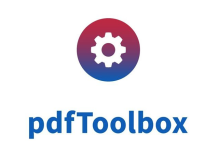The leaking of the confidential Obama Administration trade documents, which exposed the US position on critical free trade negotiations, is the latest in a string of high profile incidents of data leaks that are becoming an increasing concern for private and public sector organisations. This incident is another reminder of the impact of leaking confidential documents and should inspire decision-makers to take action to ensure these incidents cannot happen in the future.
The challenge of managing high volume documentation across public sector departments is no easy task, and one inflamed by the huge volumes of data that today’s organisations have to manage. The loss of even one single document can have catastrophic consequences, in some cases even endangering national security. With this in mind, achieving a working environment where information is captured, stored and shared securely must be a top priority for CIOs.
Recent Ricoh sponsored research unearthed some surprising findings showing that organisations often have a blind spot in terms of document-based processes. The survey discovered that document errors have directly triggered serious incidents at three out of four organisations in the past five years. These findings reflect the very public incidents that have made headlines around the world over the last few months, from the recent Obama Administration leak to the theft of the Anglo-French military drone document plans in Paris.
Importantly, a confidentiality breach may not always be so overt. There are also quieter daily risks within a business. For example, sensitive commercial information such as business plans, strategies and financial information may find its way into the hands of competitors, without a business ever being aware.
It’s not just the threat of security breaches that are keeping European leaders awake at night. Thirty-six percent of business leaders said that errors meant they failed to meet compliance requirements, leaving them vulnerable to heavy financial penalties at a time when the world is experiencing unprecedented financial turbulence. Worse still, 30% claimed these process errors caused them to lose key employees and a further 25% said it cost them major customers, demonstrating the impact that poor document processes have on organisations and, in turn, economies.
Already we’ve seen some positive global initiatives to ramp up the use of electronic document management processes, like electronic invoicing in finance departments, but this considers just one part of an organisation’s business-critical processes. Every department and every employee can benefit from a cohesive approach to document management to accurately share important information with the right people, through the right channels, at the right time, ensuring the highest levels of security all the time.
With a secure and optimised document management system in place, South African organisations will be able to eradicate incidents of data leaks, while simultaneously driving down costs through more efficient information sharing. The Obama administration isn’t the first victim of document leaks, and it’s unlikely to be the last. But with a fresh approach to information sharing, organisations will be able to plug confidential digital document leaks once and for all.





















